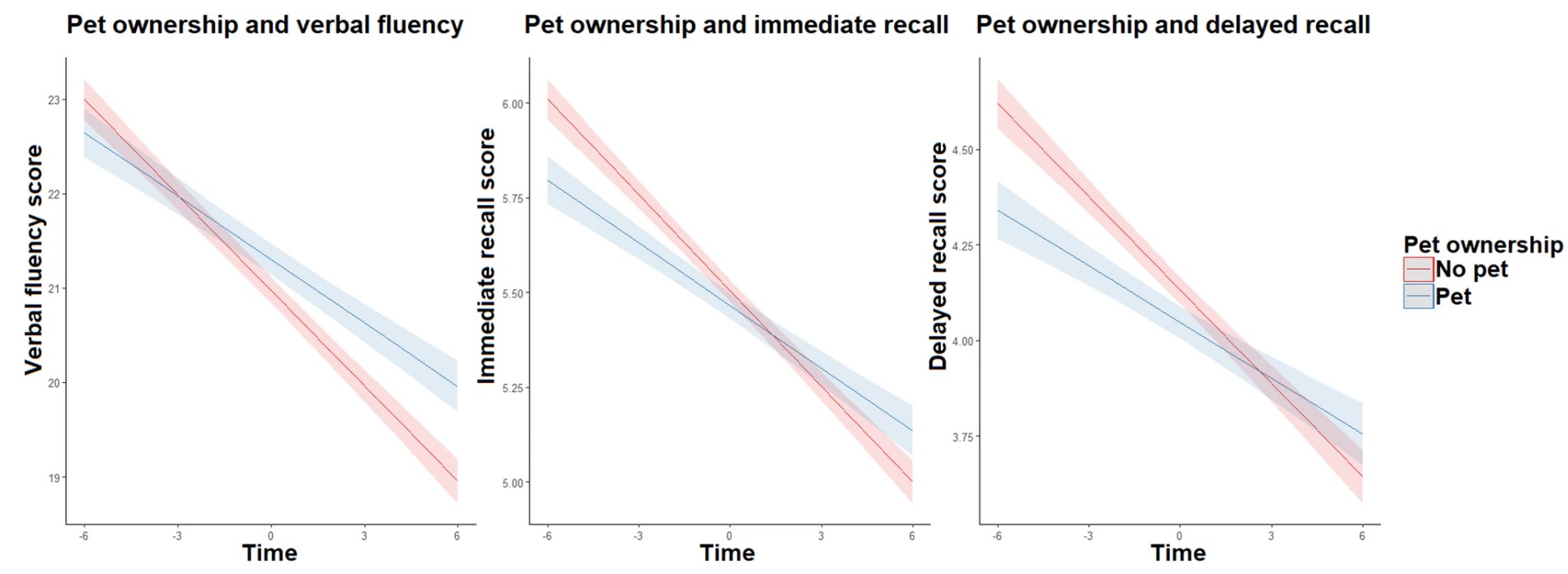The Delightful Way to Protect Your Cognitive Health
You know the drill — protect your cognitive health by eating well, exercising and socializing. But this newfound way to boost brain health is pure pleasure.


Profit and prosper with the best of Kiplinger's advice on investing, taxes, retirement, personal finance and much more. Delivered daily. Enter your email in the box and click Sign Me Up.
You are now subscribed
Your newsletter sign-up was successful
Want to add more newsletters?

Delivered daily
Kiplinger Today
Profit and prosper with the best of Kiplinger's advice on investing, taxes, retirement, personal finance and much more delivered daily. Smart money moves start here.

Sent five days a week
Kiplinger A Step Ahead
Get practical help to make better financial decisions in your everyday life, from spending to savings on top deals.

Delivered daily
Kiplinger Closing Bell
Get today's biggest financial and investing headlines delivered to your inbox every day the U.S. stock market is open.

Sent twice a week
Kiplinger Adviser Intel
Financial pros across the country share best practices and fresh tactics to preserve and grow your wealth.

Delivered weekly
Kiplinger Tax Tips
Trim your federal and state tax bills with practical tax-planning and tax-cutting strategies.

Sent twice a week
Kiplinger Retirement Tips
Your twice-a-week guide to planning and enjoying a financially secure and richly rewarding retirement

Sent bimonthly.
Kiplinger Adviser Angle
Insights for advisers, wealth managers and other financial professionals.

Sent twice a week
Kiplinger Investing Weekly
Your twice-a-week roundup of promising stocks, funds, companies and industries you should consider, ones you should avoid, and why.

Sent weekly for six weeks
Kiplinger Invest for Retirement
Your step-by-step six-part series on how to invest for retirement, from devising a successful strategy to exactly which investments to choose.
For most of us, protecting mental and physical health becomes a top priority as we get older. Still, unfortunately, some of the advice we get about maintaining good health frankly doesn't sound like a whole lot of fun.
Taking steps like cutting back on alcohol, giving up your chips and dips, and taking up exercise are important, but not necessarily moves everyone feels excited about making. That's why it's so nice when a study reveals that something very pleasant can have a positive impact on your health as you move into your later years.
One recent study published in Scientific Reports offered just this type of great news, as the research revealed that one of life's greatest sources of happiness and joy can also make a notable impact on your mental acuity as you grow older. Here's what the study revealed.
From just $107.88 $24.99 for Kiplinger Personal Finance
Become a smarter, better informed investor. Subscribe from just $107.88 $24.99, plus get up to 4 Special Issues

Sign up for Kiplinger’s Free Newsletters
Profit and prosper with the best of expert advice on investing, taxes, retirement, personal finance and more - straight to your e-mail.
Profit and prosper with the best of expert advice - straight to your e-mail.
Adding a furry friend to your family could protect your cognitive health

When it comes to life's greatest pleasures, puppy kisses are well known to be right up there with ice cream on a hot day or a leisurely walk on a beautiful beach. Now, research from Scientific Reports has confirmed what past studies have shown, and what any pet owner knows intuitively — animal companions can improve health, especially as we age.
Extensive past research has shown that pets increase happiness, improve mental health, and increase your tendency to exercise, among other benefits. Pet ownership has also previously been linked to a reduction in cognitive decline in late adulthood.
The new study built upon this past data, taking a closer look at how owning a pet affects specific areas of mental decline and delving into the types of pets that make an impact.
The data was clear: The owners of certain types of pets experienced slower cognitive decline across three specific areas:
- Verbal fluency
- Immediate recall
- Delayed recall
While pet owners started at higher baseline levels of verbal fluency, but lower baseline levels of immediate and delayed recall, the decline of all of these abilities was significantly slower than among non-pet owners.
This was true among people of all age groups, and, for the cat lovers out there, the data also showed that cats had the same positive effects as canine companions. The table below shows just how substantial the impact of having a cat or dog can be:

While the effects of having a pet on cognitive decline differed based on species — dog owners fared best on immediate and delayed recall, while cat owners specifically experienced slower declines in delayed recall and verbal fluency — both groups benefited substantially from the companion animals they welcomed into their homes.
Not all species make a positive impact on cognition

While both cat and dog lovers can rejoice at these results, which thankfully don't add fodder to the dog vs. cat person debate, not every pet owner gets the benefits of reduced cognitive decline, despite the fact that animal ownership in general tends to have positive health effects.
Researchers found that fish and bird ownership did not have a significant effect on cognitive health, despite the fact that past studies have shown that these less conventional animal companions can improve mood, nutritional intake, and stress levels.
There are several potential reasons for this, including the fact that much of the prior research showing the benefits of birds and fish typically had small sample sizes.
The relatively short lifespan of fish and (some) birds could also limit the emotional connections between owners and animals, and when birds are noisy and interfere with sleep, this can have negative effects on cognitive health due to the importance of a good night's rest.
Dogs, and to some extent cats, may also play a bigger role in shaping our lives than fish and birds, as these two species are often better equipped to act as part of an owner's social network, and to encourage owners to go into the community, make broader social connections, and engage in exercise.

Researchers were clear: "The overall effect of pet ownership on cognitive decline may be driven primarily by cat and dog ownership, rather than pet ownership in general, and therefore the specific pet species an individual owns influences its possible relationship with changes in cognition."
So, if you want to maintain your cognitive health, adding a dog — or a cat — to your household could be the way to go. With millions of dogs and cats in shelters awaiting homes, your efforts to improve your mental health could also save a life — which would be a very big win/win.
Read More
Profit and prosper with the best of Kiplinger's advice on investing, taxes, retirement, personal finance and much more. Delivered daily. Enter your email in the box and click Sign Me Up.

Christy Bieber is an experienced personal finance and legal writer who has been writing since 2008. She has been published by Forbes, CNN, WSJ Buyside, Motley Fool, and many other online sites. She has a JD from UCLA and a degree in English, Media, and Communications from the University of Rochester.
-
 Stocks Sink With Alphabet, Bitcoin: Stock Market Today
Stocks Sink With Alphabet, Bitcoin: Stock Market TodayA dismal round of jobs data did little to lift sentiment on Thursday.
-
 Betting on Super Bowl 2026? New IRS Tax Changes Could Cost You
Betting on Super Bowl 2026? New IRS Tax Changes Could Cost YouTaxable Income When Super Bowl LX hype fades, some fans may be surprised to learn that sports betting tax rules have shifted.
-
 How Much It Costs to Host a Super Bowl Party in 2026
How Much It Costs to Host a Super Bowl Party in 2026Hosting a Super Bowl party in 2026 could cost you. Here's a breakdown of food, drink and entertainment costs — plus ways to save.
-
 Your Adult Kids Are Doing Fine. Is It Time To Spend Some of Their Inheritance?
Your Adult Kids Are Doing Fine. Is It Time To Spend Some of Their Inheritance?If your kids are successful, do they need an inheritance? Ask yourself these four questions before passing down another dollar.
-
 The 4 Estate Planning Documents Every High-Net-Worth Family Needs (Not Just a Will)
The 4 Estate Planning Documents Every High-Net-Worth Family Needs (Not Just a Will)The key to successful estate planning for HNW families isn't just drafting these four documents, but ensuring they're current and immediately accessible.
-
 Love and Legacy: What Couples Rarely Talk About (But Should)
Love and Legacy: What Couples Rarely Talk About (But Should)Couples who talk openly about finances, including estate planning, are more likely to head into retirement joyfully. How can you get the conversation going?
-
 We're 62 With $1.4 Million. I Want to Sell Our Beach House to Retire Now, But My Wife Wants to Keep It and Work Until 70.
We're 62 With $1.4 Million. I Want to Sell Our Beach House to Retire Now, But My Wife Wants to Keep It and Work Until 70.I want to sell the $610K vacation home and retire now, but my wife envisions a beach retirement in 8 years. We asked financial advisers to weigh in.
-
 How to Add a Pet Trust to Your Estate Plan: Don't Leave Your Best Friend to Chance
How to Add a Pet Trust to Your Estate Plan: Don't Leave Your Best Friend to ChanceAdding a pet trust to your estate plan can ensure your pets are properly looked after when you're no longer able to care for them. This is how to go about it.
-
 Want to Avoid Leaving Chaos in Your Wake? Don't Leave Behind an Outdated Estate Plan
Want to Avoid Leaving Chaos in Your Wake? Don't Leave Behind an Outdated Estate PlanAn outdated or incomplete estate plan could cause confusion for those handling your affairs at a difficult time. This guide highlights what to update and when.
-
 I'm a Financial Adviser: This Is Why I Became an Advocate for Fee-Only Financial Advice
I'm a Financial Adviser: This Is Why I Became an Advocate for Fee-Only Financial AdviceCan financial advisers who earn commissions on product sales give clients the best advice? For one professional, changing track was the clear choice.
-
 Quiz: Are You Ready for the 2026 401(k) Catch-Up Shakeup?
Quiz: Are You Ready for the 2026 401(k) Catch-Up Shakeup?Quiz If you are 50 or older and a high earner, these new catch-up rules fundamentally change how your "extra" retirement savings are taxed and reported.